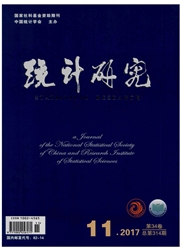

 中文摘要:
中文摘要:
健康长寿是人类社会共同的美好追求和发展趋势,却对养老金体系产生不利影响。当前,长寿风险已成为全球养老金体系面临的重要系统性风险,在我国却没有引起足够重视。本文借助国际上金融机构偿付能力资本需求的思想,首先将长寿风险对我国城镇职工基本养老保险的冲击效应进行界定,并通过联立有限数据双随机Lee—Carter死亡率模型的预测值与城镇职工养老金领取水平的预测值,评估了未来36年长寿风险对我国城镇职工养老保险的冲击效应,最后进行不同改革政策的模拟和敏感性分析。结果显示,长寿风险对我国城镇职工养老保险的冲击效应十分明显,且这种冲击效应受延迟退休年龄和养老金调整指数的影响显著,受城镇化率等其他因素的影响相对有限。
 英文摘要:
英文摘要:
Health and longevity are the common pursuit and development trends of the human society. But they do have adverse effects on the pension system. Nowadays, the longevity risk has become an important systemic risk which is faced by the global pension system, while it has not attracted sufficient attention in China. With the international financial institutions' thought about the solvency capital requirements, this paper defines the shock effect of the longevity risk to China's basic pension insurance for urban employees firstly. Then by using the predictive values of the limited data Two- Stochastic Lee-Carter Model and the predictive values of the pension levels for urban employees simultaneously, it evaluates the shock effects of longevity risk to China urban employees'pension insurance for the next 36 years. Finally, it gives the simulations about different reforming policies and the sensitivity analysis. The results show that there are very obvious shock effects of the longevity risk to the China's basic pension insurance for urban employees. And the effects of such shocks are affected by delayed retirement age and pension adjustment index significantly, but relatively limited by other factors like urbanization rate and so on.
 同期刊论文项目
同期刊论文项目
 同项目期刊论文
同项目期刊论文
 期刊信息
期刊信息
